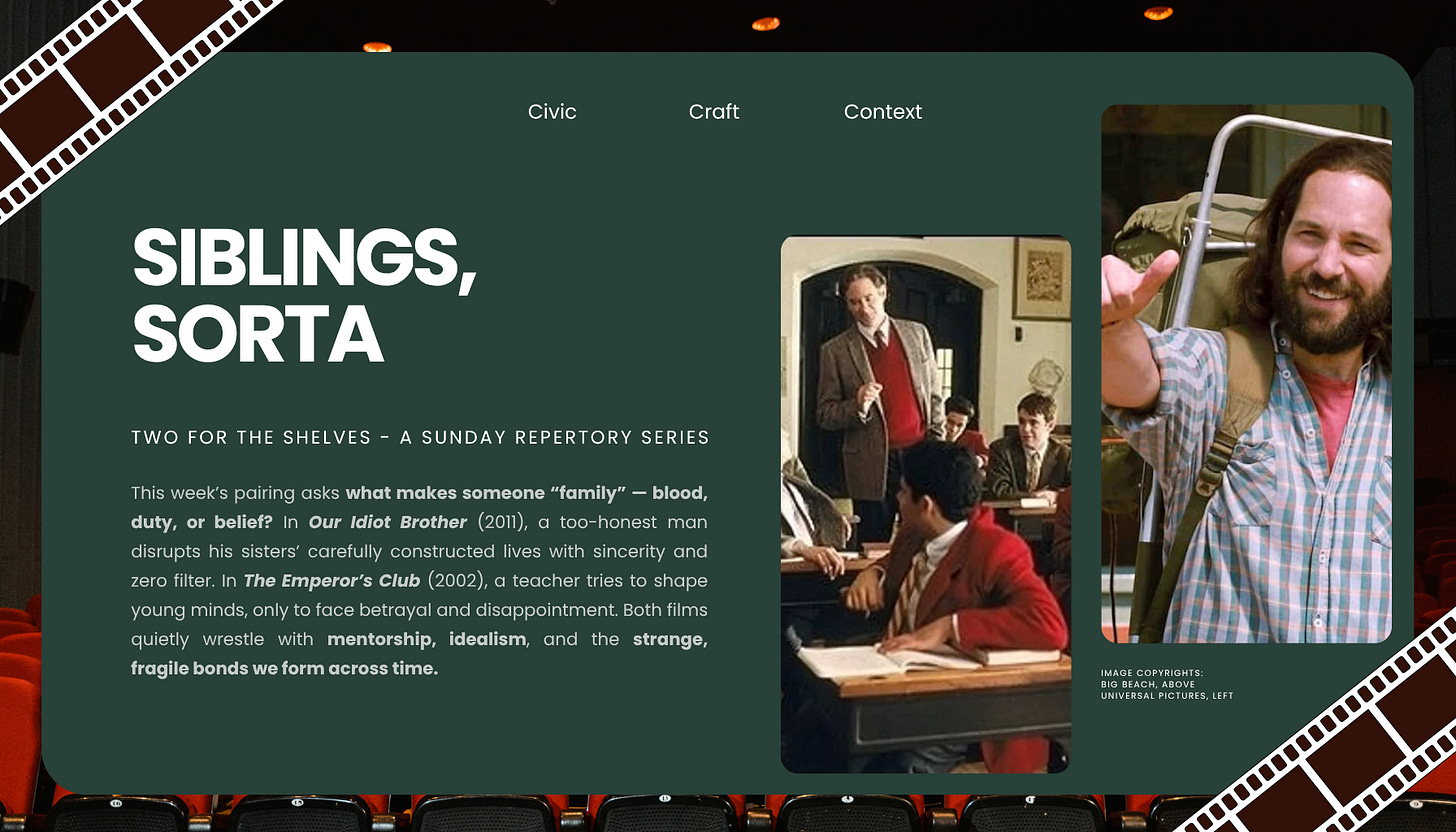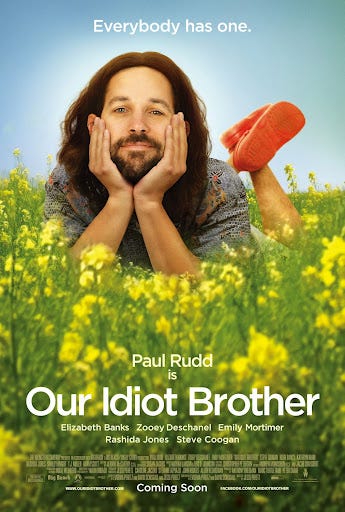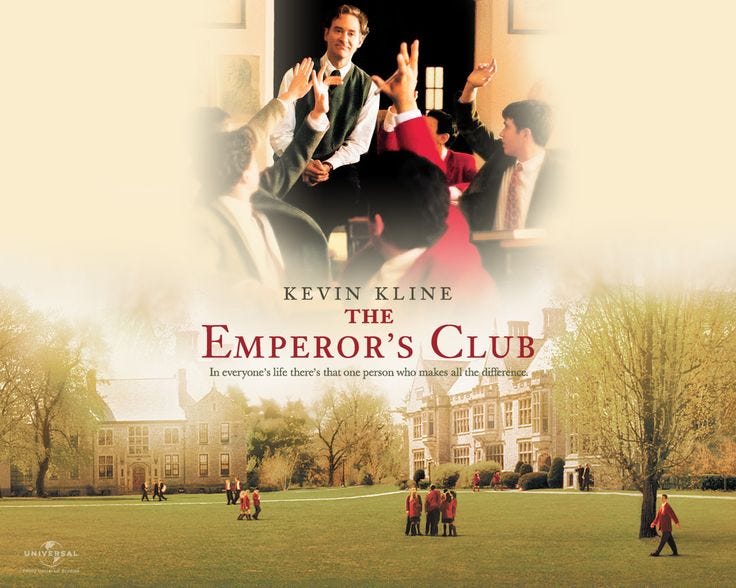What makes someone “family”? Is it blood, loyalty, time — or something stranger and more fragile?
This week’s double bill brings together two misfit-centered dramas where one character’s sincerity disrupts the lives of those around them.
In Our Idiot Brother, it’s a laid-back man who tells the truth too often for his own good.
In The Emperor’s Club, it’s a teacher clinging to ideals in a world that rarely rewards them.
Both films ask big questions in soft voices:
What happens when you believe in people too much — or not enough?
This one’s for the gentle rebels, the unexpected mentors, and anyone who’s ever tried to live by principle in a world run by performance.
🎞️ This Week’s Films:
🍷 Our Idiot Brother
Directed by Jesse Peretz / 2011 / 90 min / USA / DVD
Ned just wants to farm, trust people, and hang out with his dog — but his too-honest ways clash hilariously with his tightly wound sisters. Paul Rudd gives one of his most earnest, unguarded performances in this endearing low-key dramedy about the cost (and power) of radical optimism.
Where to watch: Available to stream on The Roku Channel, and Tubi TV. Also available for purchase/rent on Amazon and YouTube.
📜 The Emperor’s Club
Directed by Michael Hoffman / 2002 / 108 mins / USA / VHS
In a prestigious boys’ prep school, a Classics teacher tries to shape the lives of his students — only to face the limits of his own convictions. It’s a film about legacy, disappointment, and the subtle heartbreak of trying to pass on wisdom to those who may never listen.
Where to watch: Available to purchase on Amazon.
🧠 Why These Two?
At first glance, Our Idiot Brother and The Emperor’s Club seem to live in different cinematic worlds — one’s a messy indie comedy about a wayward sibling shaking up his sisters’ lives, the other a polished prep-school drama about idealism, legacy, and disappointment. But beneath their tonal differences lies a common thread:
What happens when someone refuses to conform — and what their presence reveals in others.
In Our Idiot Brother, Ned’s radical honesty and carefree outlook unsettle his more tightly wound family. He’s not trying to fix anyone, yet he exposes the small hypocrisies and emotional stagnations everyone else is ignoring. In The Emperor’s Club, a student similarly resists the mold his teacher wants to shape, but this time, the consequences unfold over decades; reflecting on mentorship, ego, and unresolved ideals.
Paired together, these films ask:
What do we owe the people who challenge our values?
And what does it cost to live in a way that’s principled… or simply free?
The humor may differ, but the moral tremors land just as hard.
🎬 FILMS FRAMEWORK PROMPTS
Use these five questions as a lens for reflection while you watch — or revisit them after.
F – Foundations
What moral code or philosophy guides the protagonist’s choices?
I – Imagery
How do costumes and physical environments reinforce each character’s inner world?
L – Layered Storytelling
What’s revealed between the scenes — in pauses, silences, or throwaway lines?
M – Motion
What emotional arcs shift subtly across the film? Who evolves — and who refuses to?
S – Subtext
What deeper longing or fear drives each character’s actions?
The thread here isn’t obvious — and that’s the point.
Sometimes the people we’re closest to aren’t the ones we chose, but the ones we end up tethered to by time, duty, or hope.
This is a pairing that lingers — soft at first, but clear in meaning the more you sit with it.
Until next Sunday!
See you in the shelves.
—E. A. Bland
📬 Stay in the Loop - Like what you’re reading?
Subscribe to get a new double feature each week, film reflections, and updates from my home archive as I keep growing, watching, and learning.
🛒 Everything’s pulled from my physical collection.
🎞️ Nothing is random — even when it is.
📚 Think of this like a self-guided film school… but slower, softer, and on your own terms.






